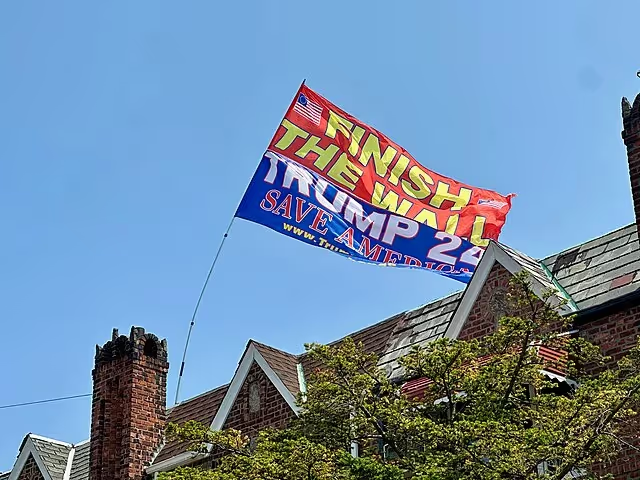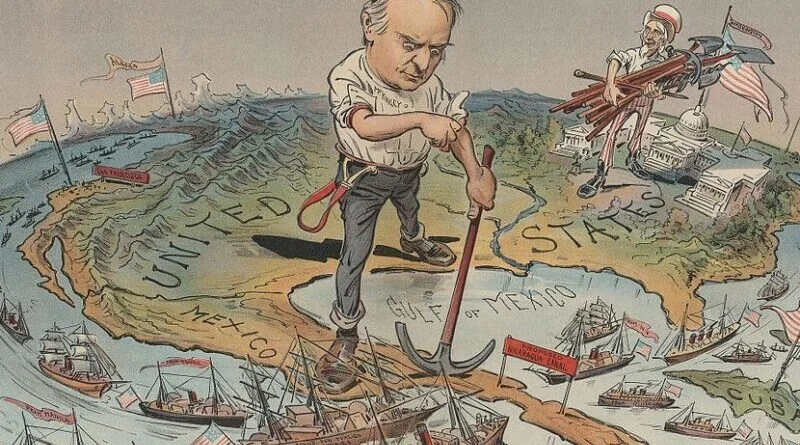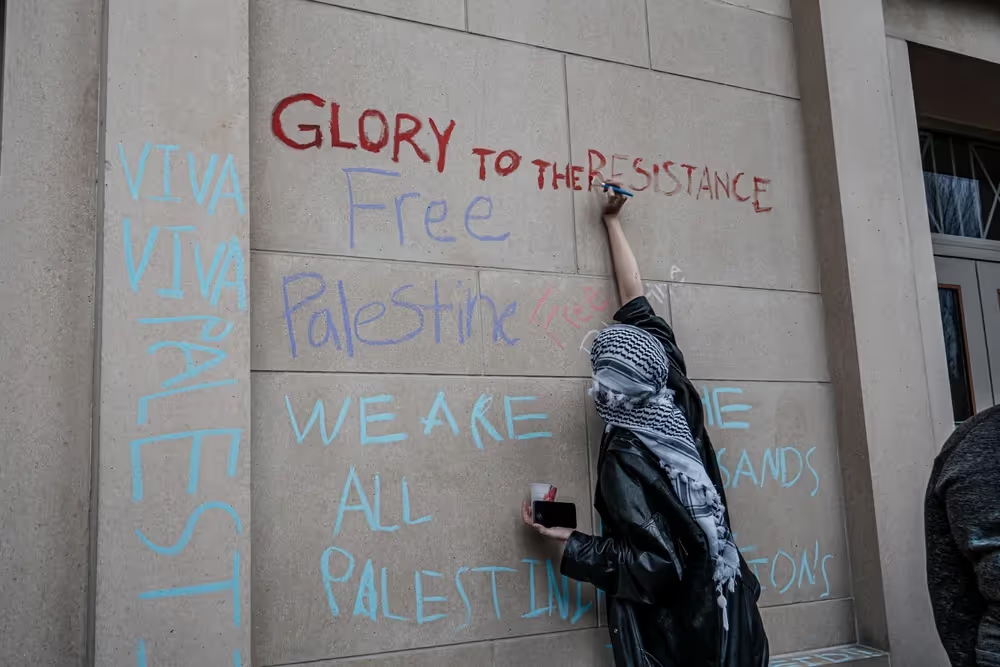
Ending Campus Antisemitism
Shut off the federal spigot, and we might see universities suddenly become bastions of religious tolerance.
Rahm Emanuel, a former Democratic Party official, is credited with the aphorism "never let a crisis go to waste" because it can provide the opportunity to make otherwise unattainable changes to law and policy. Sometimes, those crises lead to understandable (even if primarily self-interested) reactions by affected parties. In the 1960s, for example, fear of being drafted and killed in the Vietnam War prompted draft-age college students to believe (whether reasonable or not) that the war was unjust. That belief led students to protest on campuses across the country by holding sit-ins, joining protest marches, occupying (and sometimes damaging) administration buildings, or burning draft cards.
But not every instance of campus student protest can be explained on the ground that students rationally fear the prospect of a senseless death. Sometimes, a crisis leads people into a form of mass hysteria in which the id’s urge to immediately “Do something!” overcomes the ego’s far more sensible approach of engaging in a dispassionate and reasoned collection of the facts, analysis of their relative importance, and sober consideration of alternative responses. The anti-Israel—indeed, the antisemitic—utterances and protests seen in the spring of 2024 on some of the nation’s universities are an example of that latter, very different phenomenon.
On October 7, 2023, the Jewish holy day of Sukkoth, the terrorist organization formally known as Harakat al-Muqawama al-Islamiyah, or Islamic Resistance Movement, better known as Hamas—an organization whose covenant “urges the slaughter of Jews ‘smitten with vileness wherever they are found,’” as well as the “obliteration” of the nation of Israel—launched a carefully planned, sophisticated 15-mile-deep invasion of Israel, using a rocket attack for cover and armed with military-grade weapons. The terrorists killed more than 1,300 men, women, and children, some in horrific ways; wounded approximately 3,300 others; raped an unpublicized number of women, girls, and men; and took more than 240 hostages as trophies or bargaining chips for any later negotiations. According to the Times of Israel, more than 90 hostages (whether alive or dead) remain in Hamas’s custody more than a year after these barbaric attacks. Hamas murdered more Jews that day than have been killed since the end of the Holocaust. The terrorist attack triggered a responsive invasion by the Israeli military into Gaza after Hamas, a conflict that Israel has largely won on the ground (if not in the world media) and continues in some form to this day.
Some American universities—such as Columbia, Harvard, and Cornell—became political battlegrounds even though the protesting students were at no risk of being conscripted to serve in that conflict. As one commentator put it, “an unholy alliance of radical Islamists, rabid antisemites, and revolutionary Marxists” who hate Jews, Israel, and the West in general used the occasion to spew their own evil rhetoric and threats while coopting students to do the same. Students and masked protestors uttered antisemitic slogans at Jewish students—such as the infamous rallying cry of “From the river to the sea, Palestine will be free!”—and cordoned off portions of the university’s common grounds to exclude Jewish students from entering or passing through to class, as if being Jewish was a loathsome disease. Jewish students were not only made to feel like second-class (or lower) citizens but threatened with violence. Some classes were held remotely, and graduations were canceled.
It might be possible to mitigate the offensiveness of some college students on the ground that they are callow or are book-smart but lack street smarts—and so didn’t know that they were being used—or were caught up in a form of mass hysteria or mob mentality that can lead a group of people to do what no one person would do alone. Perhaps I’ll be generous. But some faculty joined the demonstrators, and they cannot invoke those defenses. Some of them also blamed Israel for Hamas’s barbarity (thereby calling into question their candlepower to be professors), spouted vile antisemitic chants (thereby calling into question their impartiality), or possibly (because some number of protesters were masked) assaulted Jew-ish students and others (thereby calling into question the universities’ implicit willingness to employ criminals). For example, a Cornell University professor claimed that the horrors were “exhilarating” and “energizing,” and a Columbia University professor described the Hamas attacks as “awesome.” Yet, the gold medal in the Antisemitic Olympics goes to Claudine Gay, then-President of Harvard University, who refused to say before Congress that student calls for the genocide of Jews would violate Harvard’s code of conduct. Student (and adult) outrage and ignorance was entirely one-sided because there was no outcry at the torture and murder of Israeli victims or the sexual assaults committed by Hamas terrorists, and no call for Hamas’s immediate release of the Israeli hostages.
Fortunately, once the academic year ended, there was a reduction (but not an elimination) in the outrageous behavior seen on America’s campuses. Colleges might think that the worst behavior is behind them. Maybe they’re right. But getting hit by a truck leads to the same result as getting hit by a train. Ask the Jewish students on campuses across the nation if America’s colleges have now become the land of milk and honey for them. I’m not aware of any such inquiry, perhaps because universities fear what the answer would be.
We, therefore, need to consider two legal approaches to this problem. One, litigation has already begun. Several lawsuits against America’s colleges have been filed and are in various stages of litigation or settlement negotiations. That might lead to a public spanking of the universities that have allowed their Jewish students to be deemed second-class students because of their religious beliefs. (Those schools are probably the same ones that would link arms in solidarity with students made to feel oppressed because their school is not a “safe place,” because students there are forced to confront ideas they find disreputable, such as conservatism.) But litigation takes time, often years. Moreover, different judges might treat the same facts differently. Proof that a particular university is a hostile educational environment might persuade some judges, but not all.
The second approach is for the federal government to address this problem by invoking the Golden Rule: that is, he who has the gold makes the rules. The federal government sends universities beaucoup taxpayer dollars to underwrite research into various fields. President-elect Donald Trump has said that he wants to disestablish the U.S. Department of Education, but doing so might shift to another agency the responsibility of managing the federal funding of higher education. So, the issue (and, sadly, the antisemitism) will remain.
Perhaps it is time to start drawing lines as to the schools and disciplines that warrant receiving the federal funds obtained by coercive taxation of Americans. If a school wants to hire or retain professors who are thrilled by the murder and rape of people simply because they are Jewish, if a school wants to have a program or course justifying the genocide of Jews, if a university president doesn’t have the moral compass to say that genocide is evil—if a school wants to choose any of those options or employ any such people, let the school fund it without the taxpayers’ hard-earned money and any approval that comes with receipt of federal funds. Shut off the spigot, and we might see universities suddenly become bastions of religious tolerance.
Does the Constitution bar the federal government from protecting Jewish students against antisemitism by withdrawing federal funds, in whole or in part, from higher-education institutions that permit the vile conduct that we saw and heard in the Spring of 2024? Well, ask the trustees at Bob Jones University. Bob Jones tried to justify its ban on mixed-racial dating and marriage by appealing to the First Amendment’s Free Exercise Clause. The school lost. Or ask all the nation’s universities whether they can refuse to admit military recruiters on campus if they accept federal funds. The answer, again, was no. The bottom line is that the Constitution does not force the federal government to fund both noble and odious conduct.
It’s time for us to draw that line and enforce it.
Paul J. Larkin is the John, Barbara & Victoria Rumpel Senior Legal Research Fellow at the Heritage Foundation.
I want to thank John G. Malcolm and Richard Reinsch for helpful comments on an earlier iteration of this Article. The views expressed in this Article are my own and should not be construed as representing any official position of The Heritage Foundation.
Politics
.webp)
Liberal Democracy Reexamined: Leo Strauss on Alexis de Tocqueville
This article explores Leo Strauss’s thoughts on Alexis de Tocqueville in his 1954 “Natural Right” course transcript.
%20(1).avif)
Long Distance Migration as a Two-Step Sorting Process: The Resettlement of Californians in Texas
Here we press the question of whether the well-documented stream of migrants relocating from California to Texas has been sufficient to alter the political complexion of the destination state.
%20(3).avif)
Who's That Knocking? A Study of the Strategic Choices Facing Large-Scale Grassroots Canvassing Efforts
Although there is a consensus that personalized forms of campaign outreach are more likely to be effective at either mobilizing or even persuading voters, there remains uncertainty about how campaigns should implement get-out-the-vote (GOTV) programs, especially at a truly expansive scale.

There's a Perception Gap With the U.S. Economy
As we approach another election cycle, it’s worth asking: what’s real, what’s political theater, and what does it all mean if Democrats regain control of the House?

International Law Is Holding Democracies Back
The United States should use this moment to argue for a different approach to the rules of war.
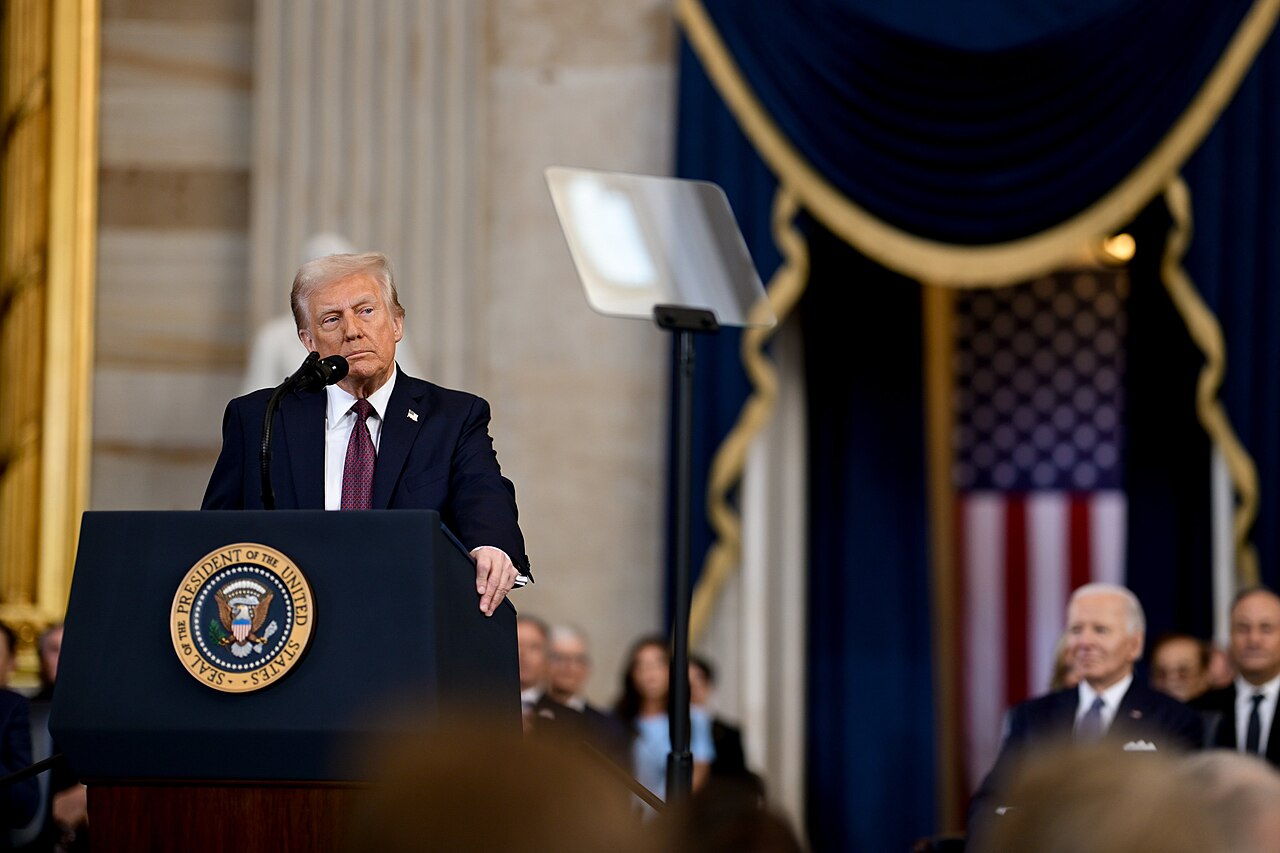
Trump purged America’s Leftist toxins. Now hubris will be his downfall
From ending DEI madness and net zero to securing the border, he’ll leave the US stronger. But his excesses are inciting a Left-wing backlash
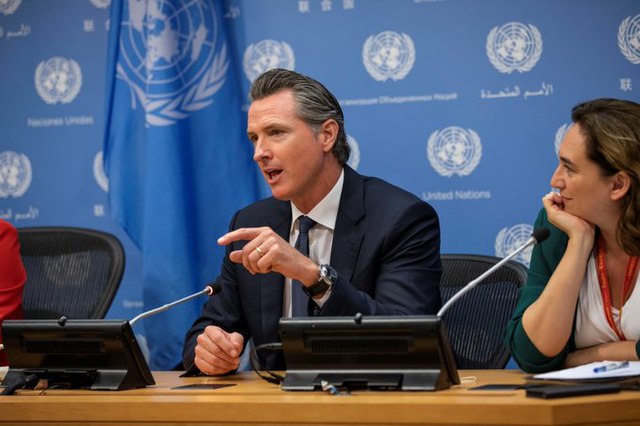
California’s wealth tax tests the limits of progressive politics
Until the country finds a way to convince the average American that extreme wealth does not come at their expense, both the oligarchs and the heavily Democratic professional classes risk experiencing serious tax raids unseen for decades.
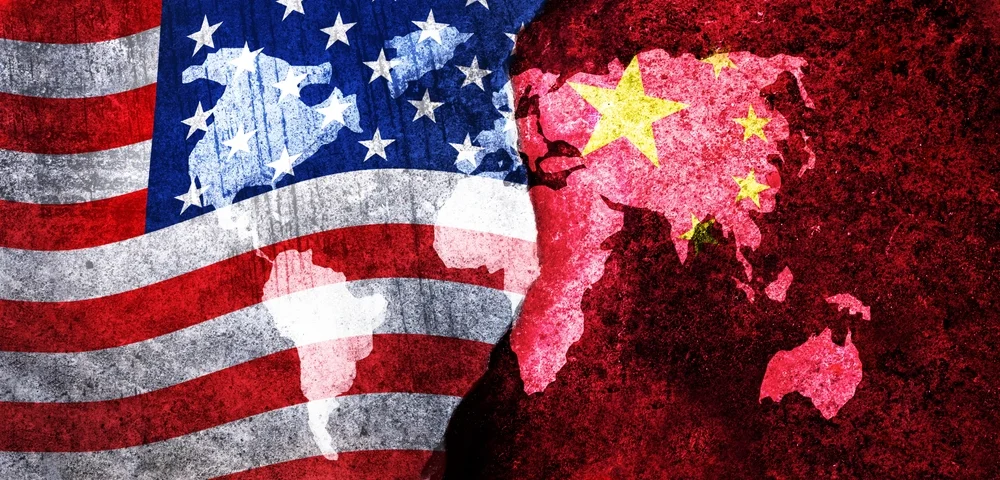
A Separate American Freedom Bloc?
Global trade is not ending anytime soon, but the trading partners involved are facing strategic realignment.
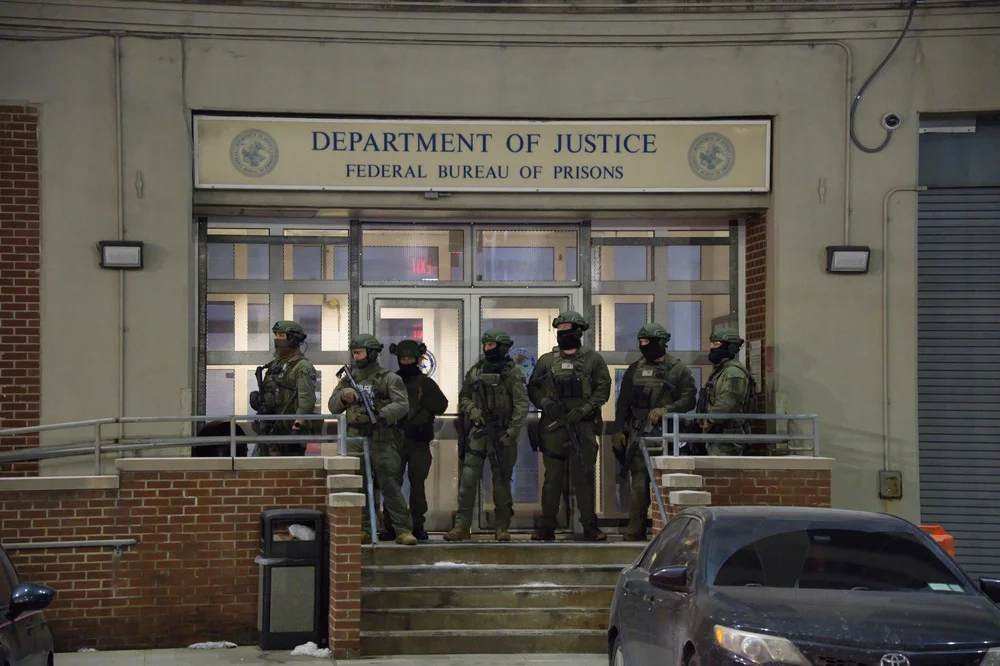
The Venezuela Symposium
Eight Latin American contributors discuss Venezuela's future and its wider consequences for the region.


